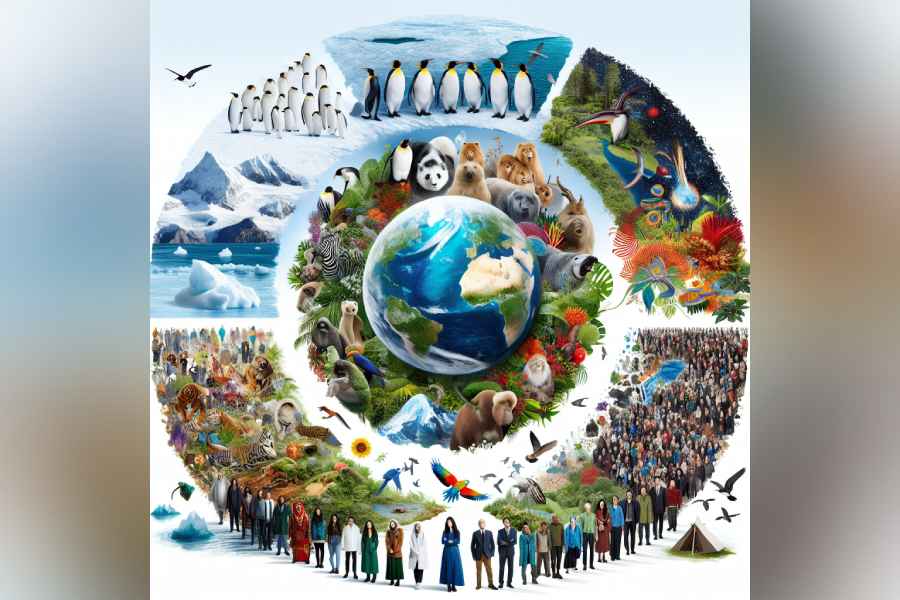India has urged developed countries to urgently provide finance, technology and capacity-building resources to developing and poorer nations to help them achieve their biodiversity targets.
Delivering India's national statement at the 16th UN Biodiversity Conference in Cali, Colombia, Union Minister of State for Environment Kirti Vardhan Singh also announced that India will launch its updated National Biodiversity Strategy and Action Plan (NBSAP) at the conference on Wednesday.
He said the country adopted a comprehensive, whole-of-government and whole-of-society approach to updating the NBSAP with goals aligned with the Kunming-Montreal Global Biodiversity Framework (KMGBF).
"It is necessary to provide means of implementation, including financial resources, for the implementation of the NBSAP. A lot of ground needs to be covered in providing easily accessible means of implementation i.e. financial resources, technology and capacity building needs with the requisite speed, scope and scale," Singh said.
He reiterated India's commitment to protecting both its own and global biodiversity for present and future generations, in the true spirit of "Vasudhaiva Kutumbakam" -- One Earth, One Family, One Future.
The minister also emphasized that India has a long tradition of respecting and protecting nature, making it one of the world's 17 most biodiverse countries, with four major biodiversity hotspots.
"To honour 'Mother Earth' as we honour our own mothers, our prime minister launched a nationwide tree plantation campaign, 'Ek Ped Maa Ke Naam' or 'Plant4Mother', on World Environment Day as part of our collective efforts to restore and protect biodiversity," he said.
India's ancient tradition of valuing 'peace with nature' aligns with PM Modi's "Lifestyle for the Environment (LiFE)" initiative, which promotes eco-friendly living on a global scale, the minister said.
He also highlighted India's launch of the International Big Cat Alliance, aimed at protecting the world's seven major big cat species, which are crucial for maintaining healthy ecosystems.
India's "Namami Gange" mission to rejuvenate the sacred Ganga river was named one of the world's top 10 ecosystem restoration efforts by the UN, Singh said.
Singh pointed out that the number of internationally recognised wetlands (Ramsar sites) in India has grown from 26 to 85 since 2014 and the number will reach 100 soon.
One of the main goals of the KMGBF, adopted at the UN Biodiversity Conference (COP15) in Montreal, is to protect at least 30 per cent of the world's land and oceans by 2030.
The KMGBF also aims to restore damaged ecosystems such as forests, wetlands, and rivers by 2030, ensuring they continue to provide essential services like clean water and air.
It also seeks to reduce pollution from plastics and chemicals that harm wildlife and ecosystems while involving local communities -- especially indigenous peoples -- in decision-making and ensuring they benefit from sustainable resource use.
Officials, however, note that protecting 30 per cent of land and oceans is a collective global goal, not a national one.
They emphasize that the responsibility to achieve these targets should not fall disproportionately on developing countries, arguing that developed nations -- historically more responsible for biodiversity loss and climate change -- should bear a greater share of conservation efforts and financing.
The United Nations Biodiversity Conference (COP16), which began last Monday, aims to assess progress on historic commitments to halt and reverse biodiversity loss.
The conference focuses on four key areas: recognising the crucial role of indigenous peoples as biodiversity custodians, finalizing a resource mobilization strategy, and operationalising mechanisms for digital sequence information on genetic resources.
Except for the headline, this story has not been edited by The Telegraph Online staff and has been published from a syndicated feed.











